A Quick History of the Aniplant Project
In late 2005 I was licensed to visit Cuba for a week. I had long been interested in seeing Cuba, an
island so near and yet so far.
Americans have been separated from it by more than 50 years of
estrangement caused by a rigorous embargo and mutual political enmity. My license wasn't as a tourist—I was accompanying
Christina, the Humane Society International's (HSI) Latin American
Manager. Our mission was to observe the
situation of Cuba's animals.
As part of HSI, Christina already had contacts in the animal
protection field for us to visit. As it
turned out, the most important contact we had was Nora Garcia, the President of
Aniplant, Cuba's Association for the Protection of Animals and Plants.
Aniplant (not a part of the Cuban government) is a private
member organization, now over 25 years old, which does a surprising amount of
good for Cuba's animals on a scant, almost nonexistent budget. Nora showed us vet offices, a vet hospital, a
pound, zoos, and even the radio station where she gives a short talk weekly on
pet care, There was so much to see we
were still seeing new organizations having to do with animals a year later when
I returned to Cuba with Neil Trent, HSI's Managing Director.
During that second year we became very familiar with
Aniplant's activities, and we were able to conclude that Nora (nearing 25 years
as Aniplant's President) was unusually skilled in animal protection, and like
many Cuban organizations, Aniplant was starved for support. If there was a way to help her, great and
good changes could result for Cuba's animals.
Aniplant was sterilizing about 600 dogs and cats a year in
weekend clinics tht served different Havana neighborhoods each week. That effort was well organized but lacked
resources. They needed injectable
anesthesia meds in greater quantities if they were to expand. Havana, with its large population, had too
large a population of homeless animals on the streets.
HSI has long preached that the only effective humane way to
reduce homeless animal populations is through massive sterilization campaigns
applied over the long term. I began to
think we could organize a small charity to support Aniplant in Cuba, especially
with anesthesia meds, Aniplant could expand their sterilization clinics to the
point where the stray population is significantly reduced. Out of these thoughts our charity, The
Aniplant Project (TAP) was born in 2007. Its sole purpose was and is to help
Nora with support for Aniplant, Cuba.
Today in most ways TAP is as small as it was the day it was
formed. It has no employees, or real
estate or other tangible assets. It does
have some donated money dedicated to help Aniplant as the need and our ability
to meet it become clear. It does have my
efforts and those of Charlene, my wife,
Charlene has worked tirelessly for years to create a website, Christmas
cards, brochures, our incorporation, our 501(c)(3) designation, our
registration as a Florida charity and much more. Without her efforts, TAP would have
failed. I have traveled to Cuba 7 times
and Charlene once to coordinate our efforts with the work of Aniplant. I have scribbled blogs and newsletters (as I
am doing now) to try to export an appreciation Aniplant's good work and our
mission to support it. We've had a few
notable successes:
·
Sterilizations increased from 600 to over 5000 per
year in a few years.
·
Aniplant was able to trade its old HQ (an 8th
floor apartment in a building with no working elevator), for a one floor
building on a known street in Central Havana.
Much renovation has been done, and the addition of upper floors has
provided expansion.
·
A prominent British veterinarian, Dick White
Referrals, has equipped a modern veterinary office and surgery located in
Aniplant's HQ building.
·
Dick White Referrals has established yearly
conferences in Havana for Latin American veterinarians in Havana.
·
Several years of thousands of sterilizations has
cut the number of strays collected from the streets and poisoned by the
government. Currently killings in this
"zoonosis" program have declined by 4000 a year from the level of ten
years ago.
·
Electrocution of pound animals has ceased in
Cuba.
The biggest difficulty has been
Cuba and Costa Rica banning Ketamine, an injectable animal anesthetic used in Aniplant's
sterilization clinics. This has required substitutions and caused shortages and
now threatens the rate at which sterilization work is done.
Another problem is the US Embargo
against Cuba. This requires a license
for every shipment, visit, and money transfer, even for humanitarian purposes.
For the future, we have goals to
help the animals:
·
We would like to provide a small car for Nora's
transportation within Havana and to nearby cities. Used cars are very expensive and new cars are
almost impossible to obtain. Now Nora
uses taxies, jitneys, public buses, and the help of friends in addition to
walking. One suitable example of an old
Fiat 500 cost $6000.
·
We would like to substitute humane euthanasia
meds for the strychnine used in the government's zoonosis program. This requires negotiations with the zoonosis
staff, and the managers who run the program, as well as significant costs of
the needed meds.
·
A boarding kennel at the HQ could become a
source of income for Aniplant.
Since TAP was established, I have
written much about Cuban animals. My
blog contains about 200 chapters at helpingcubananimals.blogspot.com. I have studiously avoided expressing
political opinions as the goodwill of both the US and the Cuban governments is
needed for Aniplant's success. But,
thanks to President Obama's and President Castro's 12/17/14 agreement to
normalize relations between the two countries, we now see a much brighter
future for the animals. It portends a
relaxation of restrictions on travel and money transfers, and, above all, an
eventual lifting of the US Embargo, one of the longest lasting ill-considered
restraints ever in world trade.
Now, nearly ten years to the day
after my first visit to Cuba, we see opportunities well beyond what we
envisioned at the beginning. May the
future be a much better one for the animals.
Les Inglis, Founder, The Aniplant
Project.













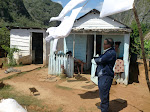




























































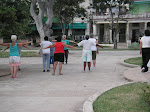
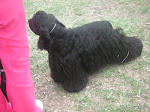
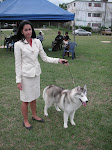


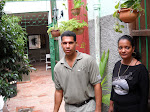




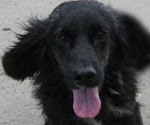
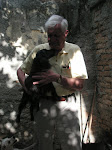



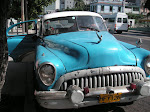

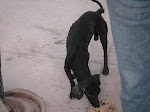


No comments:
Post a Comment